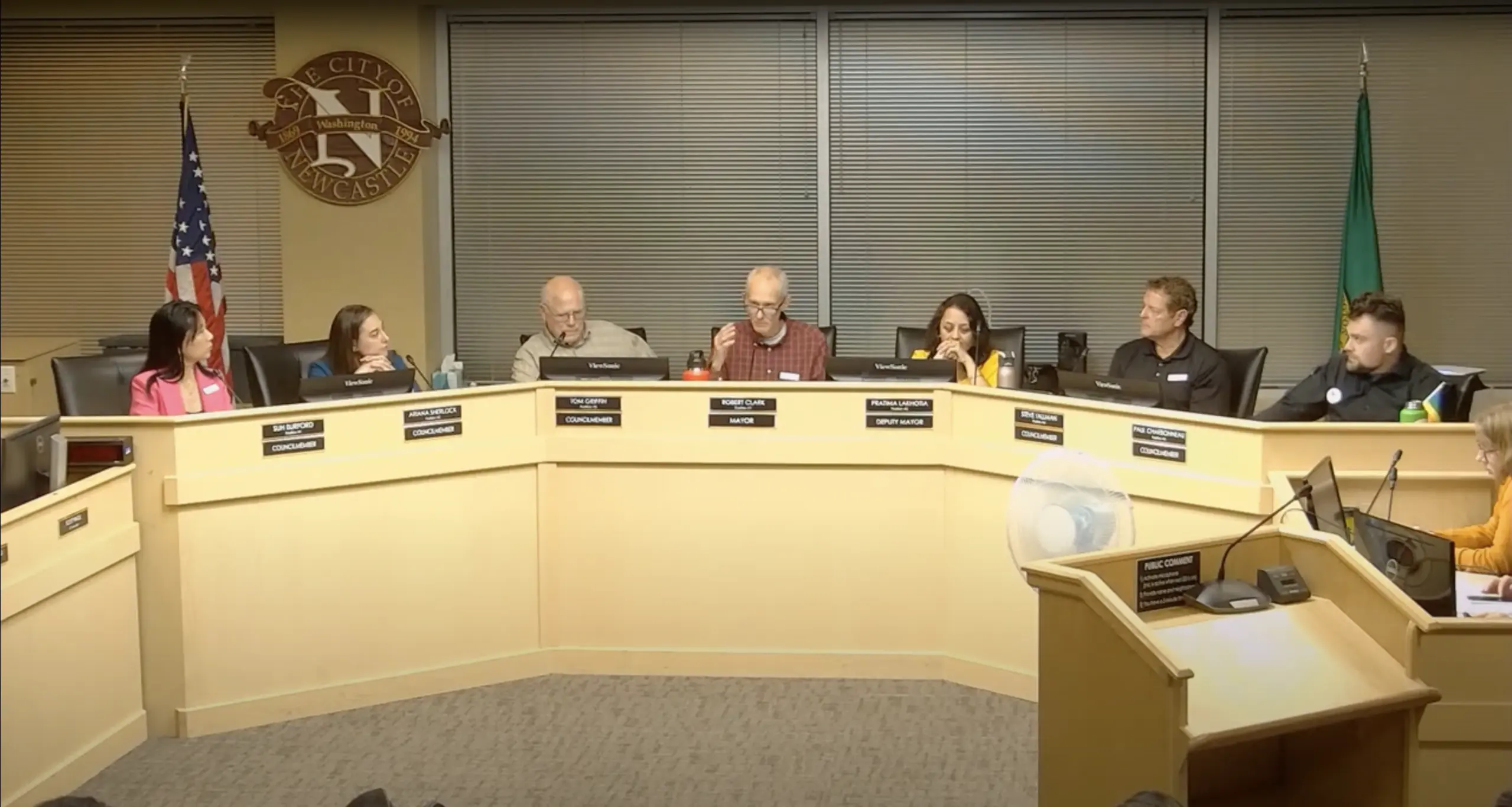
The Mayor Robert Clark, while giving his controversial speech at the Newcastle City Council session

The Mayor Robert Clark, while giving his controversial speech at the Newcastle City Council session
On the day before Juneteenth, Newcastle Mayor Robert Clark
ignited a firestorm of controversy with remarks disparaging both reparations for Black Americans and
the city's LGBTQ+ community. During a debate over flying the pride flag, Clark's 15-minute speech
drew sharp criticism from local leaders and residents alike.
Clark's speech came amidst a
backdrop of mounting tensions in the Eastside community following a city council vote that initially
rejected flying the pride flag. His comments, perceived by many as divisive, were delivered under
the pretense of rejecting hate and division.
Questionable Claims and Misguided
Analogies
Clark addressed the LGBTQ+ community with a seemingly welcoming statement
that quickly turned accusatory: "To all of you in the pride movement, you’re very welcome in our
city, but be very careful of the hate that’s in your midst. Right? It’s not coming from outside,
it’s coming from within." This statement implies that the LGBTQ+ community itself is a
source of hate, a problematic claim that shifts the blame from real external threats they often
face, which is widely known as victim-blaming.
He further accused a "small, vocal
minority that does not stand for Newcastle shared values" of creating discord for "personal
and political gain." This argument is a textbook example of a straw man argument, where he
misrepresents the intentions and actions of advocates to dismiss their legitimate
concerns.
Historical Grievances and the Legacy of Slavery
Clark’s
commentary on reparations was equally contentious. He questioned the relevance of addressing
historical grievances: "How long do we hold on to grievances? A couple years, a couple of
decades, a couple centuries? You want to pass down to your great-, great-grandkids that, ‘Hey,
one day, you know, I was called a bad name, you know, 200 years ago, so don’t forget, man. Be a
victim.’"
This dismissal of the long-term impacts of slavery and systemic racism
ignores the persistent inequalities that descendants of slaves continue to face. His statement also
employs a false equivalence by trivializing the deep, historical injustices suffered by Black
Americans.
Misrepresenting California's Reparations Efforts
Clark
criticized California's reparations initiatives, falsely claiming, "California was a free state
with no slaves and nobody is a slave there today." Despite California’s status as a free
state, historical evidence indicates that slavery did exist there. This factual inaccuracy
undermines his argument and disregards the state’s efforts to address historical wrongs through
policy measures rather than direct financial compensation.
The Perpetual Victim
Narrative
Clark's assertion that "the perpetual victim mentality has to stop
somewhere" reveals a fundamental misunderstanding of the purpose of reparations and
acknowledgment of historical injustices. Recognizing past wrongs is not about fostering a victim
mentality but about seeking justice and healing for affected communities. This also shows his
disconnection from the human experience of a significant part of the population, thinking that his
own is, and or should be, the only valid human experience, from his position of
privilege.
Violating Privacy and Misusing Public Office
Adding to the
controversy, Clark read comments from a private neighborhood page, citing a resident's full name
without consent. This act, performed in his official capacity, raises serious ethical concerns.
Washington State's RCW 9.73.030 underscores the importance of consent in privacy matters, suggesting
Clark's actions were inappropriate and potentially unlawful.
A Divided Community and
the Path Forward
The mayor’s inflammatory remarks have polarized Newcastle. However,
the community’s response, including a peaceful march and eventual reversal of the council’s decision
to fly the pride flag, demonstrates resilience and a commitment to inclusivity.
Clark’s
comments serve as a stark reminder of the ongoing challenges faced by minoritized communities and
the importance of vigilant advocacy. As Newcastle moves forward, it is crucial to foster dialogue
that promotes unity and understanding, rather than division and misinformation.